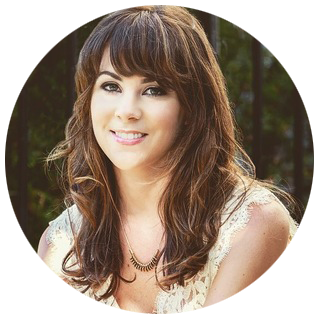Are You Providing Your Body With the Fuel it Needs to Function Properly?
What Does Your Circadian Rhythm Have to Do With Recovery?
When Eating Disorders and Bariatric Surgery Overlap
5 Benefits of Caloric Beverages in Recovery
3 Tips for Coping When Things Don’t Go Your Way
How to Move Beyond “Mostly Recovered” to FULLY Recovered
The Intersection of Weight Stigma and Eating Disorders
3 Common Reasons We Overeat (And What to Do About It)
What to Do About Eating Disorder Rules
Weight Loss Journey: Destination Misery
4 Steps For Family Meals During Eating Disorder Recovery
3 Reasons You Shouldn’t Diet This Year (And What To Do Instead)
Intuitive Eating Isn’t "Learn How to Eat So You Won’t Be Fat"
Spotted: A Diet in Disguise
Spotted: A Diet in Disguise
Dr. Colleen Reichmann
I’m just going to come right out and say it- I hate the term “clean eating.” Never has a diet used such obviously guilt-ridden vernacular. The message behind clean eating is clear, isn’t it? Certain food is “clean” (i.e. moral, pure), and other food is “dirty” (impure, bad, amoral).
Clean eating culture is dangerous because it is not super transparent. Advocates of clean eating like to assert that it is not a diet, but a lifestyle change.” Sounds pretty doesn’t it? Lifestyle change. The small font not included by most clean eating advocates is that this lifestyle change includes a series of food rules and restrictions. Or, in other words, it is a change of your style of life into one that includes dieting.
Clean eating is a dressed up term for diet. Plain and simple. Where did this euphemism come from? Well, the idea of dieting seems to have gotten a little bit of a bad rap over the past ten years or so. Maybe that is because the public was catching on that diets don’t work. Maybe it coincides with the influx of militarized fitness fads. Whatever the reason, one thing is for sure—the food industry and media have capitalized and continue to capitalize on the idea that we no longer need to diet—we just need to change. The worst part? We, the public, eat it up (pun intended).
We charge out to buy spiralizers and denounce fruit as too sugary. We load smoothies with vegetables (seriously come up—let’s call a spade a spade—smoothies made mainly from vegetables suck) and whip up bone broth soup because of collagen. We are attracted like magnets to food products listed as organic. Milk chocolate? Processed crap, we mutter to ourselves. Cacao bits? Load ‘em up.
I do not actually have any problem with wanting to incorporate healthy food into one’s diet. However, anything taken to the extreme is problematic. It is just as bad to eat just kale three meals a day as it is to eat pop tarts three meals a day. And the problem is, the concept of clean eating becomes extreme so easily. Think about it. The term “clean” denotes a morality of the food that we consume. Some foods are good, clean, or pure. Others are bad, dirty, or amoral. We humans tend to become activated by messages about morality. Hence, the judgement-laden undertones of the term “clean eating” affect our psyche in undeniable ways.
The good news? There have been a spattering of articles over the past year or so that question the benefits of “clean eating,” hence it is reasonable to assume that the term will be defunct in the next five years. The bad news? Be aware: fad diets are shapeshifters. When one wears thin, the wellness industry tends to catch on and coins a brand new name for said diet. Hence the only way to truly shut down diet culture is to educate ourselves about those roses-by-other-names (i.e. diets in disguise).
So the next time you hear about the newest wellness fad involving food, be sure to ask yourself:
1. Does it encourage restriction?
Is this food fad suggesting that eating less is important? Is fullness considered a negative? Is the message “eat less to be happy” pushed at all?
2. Does it subtly or blatantly include the message that thinner=healthier or better?
Is the message behind the food fad, “eat this way and you will look like him/her?” Does it promote the idea that weight loss is the golden fountain of health?
3. Does it suggest cutting out certain food groups?
Does the food fad promote the message that certain foods should be completely banned from your energy intake? Is the word toxic used at all?
4. Does it promote mistrust of your body?
Does the message suggest that our bodies need to be outsmarted? Does it suggest that certain foods are the equivalent of drugs to our minds?
Summarily, when it comes to food fads, a good rule of thumb is—if it promises salvation through eating—it is a fad diet. So call out the wellness industry every time they shape-shift. Protect your emotional well-being by shouting back at diet and “wellness” culture. Food freedom and overall happiness will be worth the effort-I promise!
Dr. Colleen Reichmann is a licensed clinical psychologist, practicing in Williamsburg, Virginia. She works in her private practice, Wildflower Therapy and is a staff psychologist at the College of William and Mary. She is recovered from an eating disorder, and this experience sparked her passion for spreading knowledge and awareness that full recovery is possible. She is now an eating disorders specialist, and has worked at various treatment facilities including University Medical Center of Princeton at Plainsboro Center for Eating Disorder Care, and The Center for Eating Disorders at Sheppard Pratt. She is an advocate for feminism, body positivity, health at every size, and FULL recovery. She writes about body image and eating disorders for morelove.org, Project Heal, Recovery Warriors, and The Mighty.
Visit her website.
3 Steps to Quieting the Food Police
Photo Credit: Shutterstock
If you are struggling with an eating disorder or are a chronic dieter, you know very well how loud the food police can become. It lives in your mind and imposes food rules and regulations, it judges every choice and it inflicts feelings of guilt and shame. The food police (which some refer to as the ED voice) can truly fuel our disordered thoughts and keep us from recovering. However, as with any issue that involves your brain, silencing this voice is not as easy as it seems. It takes a lot of practice, patience, and commitment. Here are 3 steps to help you quiet the Food Police.
1. Be Curious About Your Thoughts
Whenever you are confronted with thoughts around food, try to distinguish who is speaking: you or the food police. When we understand the food police is talking, we are then in a position to challenge it. Gaining awareness of our situation is often the first step to making any meaningful change. In the book Intuitive Eating by Evelyn Tribole and Elyse Resch, this is called being a « Food Anthropologist ». It comes down to being a neutral observer. To help with this, you may want to keep a journal and write down the different thoughts that come up.
2. Ask Yourself If The Thought Is Helpful, Kind and True
Once you’ve noticed the messages you are replaying in your mind about food, ask yourself:
· Is this thought helpful? Is it helping me move towards happiness and wellbeing?
· Is this thought kind? Does it consider my unique situation?
· Is this thought true? What proof do I have to support this idea?
3. Decide To Reject What Does Not Serve You
Once you’ve identified the thoughts that are not helpful, kind or true, mindfully decide to reject them. Better yet, replace them with an idea that counters this thought. After years of struggling with food, it takes a lot of time to undo the automatic thoughts we’ve come to learn. It can be helpful to experience self-compassion through this process. After all, we never invited the food police, it was forced upon us by a variety of different factors, including diet culture and a society obsessed with food and impossible beauty standards.
The food police can truly be a jerk, but there is hope. While you work towards shutting it down, it will slowly become quieter and quieter. Take things one step at a time and don’t forget to love yourself throughout the process.
Josée Sovinsky is a passionate Registered Dietitian working in a community setting in Toronto, Ontario. After facing her own struggles with disordered eating during her degree, she developed a strong interest in helping those affected by eating disorders and mental illness. She decided to learn more about intuitive and mindful eating, body acceptance and Health at Every Size®, which now strongly guide her work. She dreams of a world free from mental health stigma, body shaming, and disordered eating. When she is not helping others make peace with food, she enjoys baking, photography and doing yoga in her living room. Visit Josée's website and connect with her on social media.


































